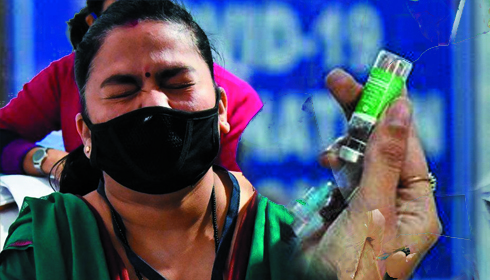
New research suggests that the COVID vaccine may lower the likelihood of pregnant women needing a caesarean section
A recent study found that pregnant women who received the COVID-19 vaccine experienced a significant decrease in the likelihood of undergoing caesarean deliveries and encountering other pregnancy-related complications. This study, published in BMJ Global Health, conducted a comprehensive meta-analysis using data from 67 studies involving more than 1.8 million women. The research was sponsored by the National Institute for Health and Care Research, Birmingham Biomedical Research Centre.
.New findings reveal that receiving the COVID-19 vaccination during pregnancy significantly reduces the risk of infection, hospitalisation, and adverse outcomes for both the mother and the baby. Recent studies demonstrate that vaccination significantly reduces hospitalisation chances for women by 94% and reduces the risk of contracting COVID-19 by 61%. The study linked vaccination to a significant decrease in caesarean section rates, neonatal intensive care unit admissions, and hypertensive disorders during pregnancy.
Professor Shakila Thangaratinam, a prominent author of the PregCOV study and the University of Birmingham's Dame Hilda Lloyd Chair of Maternal and Perinatal Health, emphasizes the significance of these findings.
"Our findings highlight the benefits of the COVID-19 vaccination schedule for pregnant women. In addition to the expected benefits of reduced infections, we have observed a significant decrease in pregnancy complications such as hypertension and caesarean sections," he said.
"This emphasizes the importance of adopting a comprehensive approach to maternal health systems and ensuring that future healthcare policies and pandemic preparedness take into account the interconnectedness of maternity care and our overall healthcare system," Thangaratinam added.
PregCOV analysed data spanning from December 2019 to January 2023 to evaluate the efficacy of COVID-19 vaccinations in pregnant women, who are at a higher risk of contracting the virus. The study aimed to provide pregnant and postpartum women with the information they need to make informed policy decisions.
The report underscored the insufficient data available to make definitive conclusions about the potential adverse effects of the COVID-19 vaccination, including Guillain-Barré syndrome or thrombotic episodes. Furthermore, it was challenging to differentiate the impacts of new variants of concern due to the inclusion of studies from multiple waves of the pandemic in the meta-analysis.
This study emphasises the importance of the COVID-19 vaccination in protecting pregnant women and improving the health of both the mother and the baby. This comprehensive study supports the ongoing efforts to incorporate vaccination into strategies for pandemic preparedness and maternal healthcare.